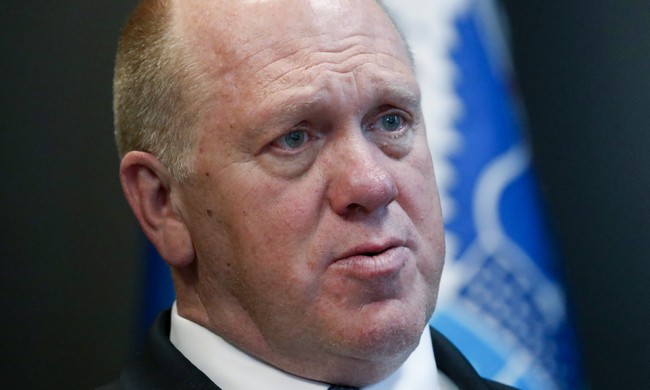Trump's Security Clearance Shake-Up: A National Debate
President Trump has sparked significant debate after revoking security clearances from several key political figures, provoking discussion on implications for national security.
Published February 11, 2025 - 00:02am

Image recovered from townhall.com
The recent decision by President Donald Trump to revoke security clearances from former key figures in the U.S. government has triggered a heated discourse on the implications for national security, political allegiance, and presidential authority. This bold move to withdraw access from former President Joe Biden, ex-Secretary of State Antony Blinken, and ex-National Security Adviser Jake Sullivan marks a significant deviation from traditional practices where former high-ranking officials maintain access to sensitive information to aid transitioning administrations or provide expertise when needed.
The rationale behind President Trump's actions appears deeply rooted in political retaliation and the ongoing tensions between factions within the U.S. government. According to Trump, these individuals cannot be trusted with classified information, which raises pertinent questions about the underlying motivations for such accusations. The action has been paralleled to a larger trend seen within Trump's administration, which includes efforts to subjugate bureaucratic elements perceived as oppositional.
Further controversy arose with the revocation of security clearances from other prominent figures involved in legal cases against Trump, such as New York Attorney General Letitia James and Manhattan District Attorney Alvin Bragg. This decision has been viewed through a lens of apparent retribution against those who pursued legal challenges against Trump, including cases like the infamous hush money allegations and potential overstating of assets for financial gain.
In addition to the core group affected, the revocation extended to former National Security figures like John Bolton and General Mark Milley, who faced similar fates under related arguments of treason and breaches during Trump's previous term. The situation highlights ongoing divisions within Washington, where loyalty lines and trust deficits are visibly impacting operational practices more than ever before.
This political upheaval also brings to light past interactions when President Biden withdrew Trump's own security clearances citing erratic behavior post-presidency. The current landscape, therefore, underscores not only a tit-for-tat approach but also the evolving standards for post-administration access controls that mirror broader political wrangling.
Beyond individuals, Trump's administration has also initiated a potential reduction in the federal workforce by offering severance packages aiming to streamline bureaucratic operations. This unprecedented proposal could set significant records should it reach fruition and denotes a systematic attempt to reshape federal employment terrains.
Critics argue the removals signify broader challenges within America's democratic structures, fostering environments where political vendettas may overshadow institutional norms for security continuity. These actions demand introspection on the long-term ramifications for bipartisan interactions, intelligence sharing, and maintaining the seamless integration of national security mechanisms across successive administrations.
Ultimately, this multifaceted move by President Trump continues to underscore the complicated dynamics of American political landscapes where precedent, policy, and personal animosities converge, influencing the country's governance ethos significantly. Observers worldwide are keenly watching for the subsequent effects of these developments on national stability and international diplomatic engagements.






